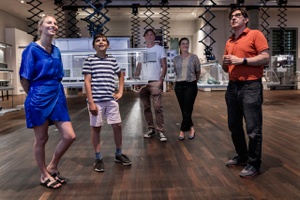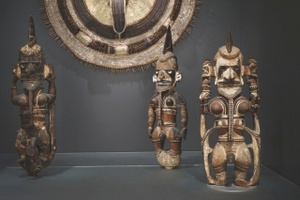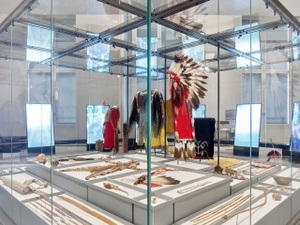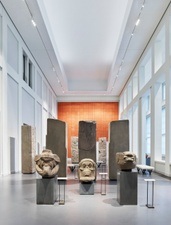Becoming kin: the making of kinship in Indigenous Amazonia mit Aparecida Vilaca
In the organizer's words:
Family is a vague collective term for the most diverse forms of togetherness. It stands for origin and belonging, but also for obligation and conflict. As a central building block of social life, the family conveys rules and norms, shapes desires, fears and goals.
At the same time, there is no binding definition of what a family is. In different times and cultures, it can be understood and taken for granted in very different ways.
The interdisciplinary lecture series "Beziehungsweise Familie" is dedicated to the contradictory reality of the nuclear family model that is widespread today, especially in Western industrialized countries, and asks for alternatives from a global perspective.
Renowned academics from various disciplines and subject areas will present current research for discussion that examines the potential of alternative family and kinship concepts in terms of their creative, ethical and innovative aspects.
The lecture series is the prelude to the Humboldt Forum's theme year of the same name, which starts in fall 2025.
Conception of the series: Prof. Dr. Daniel Tyradellis (Humboldt-Universität zu Berlin), Dr. Alia Rayyan (Humboldt-Universität zu Berlin), Dr. Laura Goldenbaum (Stiftung Humboldt Forum im Berliner Schloss).
The lecture series is taking place as part of a cooperation between the institutions of the Humboldt Forum. Programmatic director of the cross-institutional cluster: Dr. Laura Goldenbaum.
Lecture by Aparecida Vilaca: Becoming kin: the making of kinship in Indigenous Amazonia
In this seminar, Prof. Dr. Aparecida Vilaca would like to draw on her personal experiences, which she describes in her book Paletó and Me. Memories of my Indigenous Father (Stanford 2021), Prof. Dr. Aparecida Vilaca will discuss how the indigenous peoples of the Amazon do not see kinship as something that is given through biological relationships, but that must be established in the long term through acts of care and recognition.
Aparecida Vilaça is an associate professor at the Graduate Program of Social Anthropology/MuseuNacional/Universidade Federal do Rio de Janeiro and a researcher for the National Council for Scientific Research (CNPq). Since 1986, she has worked among the Wari' Indians in the southwestern Amazon, Brazil. Her field research has been funded by the Ford Foundation, the Wenner-Gren Foundation for Anthropological Research and the John Simon Guggenheim Foundation. She was Professeur Invité at the École des Hautes Études en Sciences Sociales in Paris in 1999, Directeur d'Études Invité at the École Pratique des Hautes Études in the same city in 2000, Visiting Professor at the Centre of Latin American Studies at the University of Cambridge (UK) in 2001 and Visiting Scholar at the Department of Social Anthropology at the same university in 2004.
Aparecida Vilaça is a respected author of numerous books, including Strange Enemies: Indigenous Agency and Scenes of Encounters in Amazonia, Praying and Preying: Christianity in Indigenous Amazonia and Comendo como Gente: Formas do Canibalismo Wari'. She is passionate about collaborative research and recently co-authored Science in the Forest, Science in the Past. Her book Paletó and Me: Memories of My Indigenous Father was awarded the prestigious Casa de las Américas non-fiction prize, the most important literary prize in Latin America. Her moving essay Mourning Kin After the End of Cannibalism was published in the magazine Sapiens.
- Free admission
- Language: German
- Room 3, ground floor
- Part of: Lecture series Beziehungsweise Familie
This content has been machine translated.












